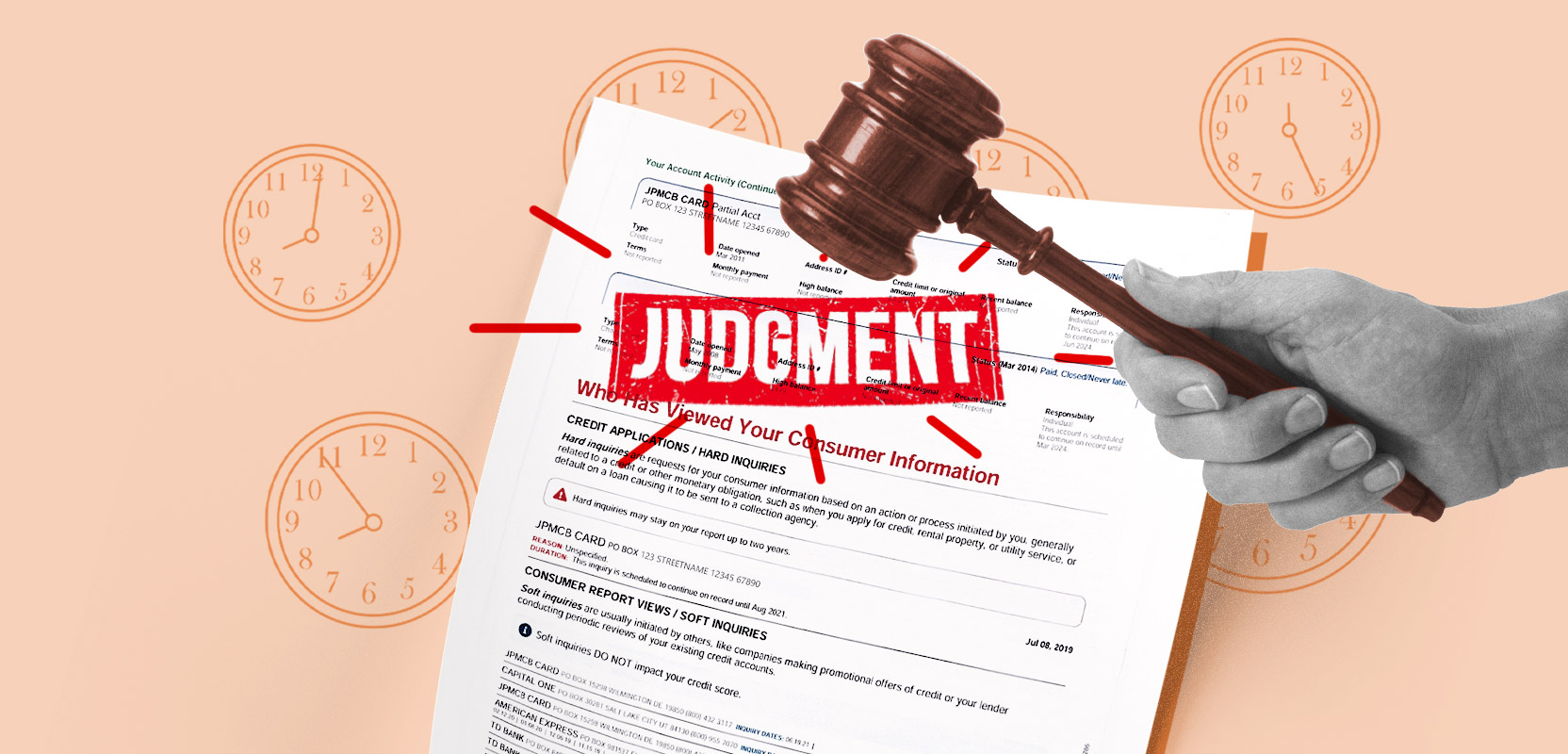

Finance
How Long Does A Tax Lien Stay On My Credit
Published: January 7, 2024
Find out how long a tax lien can impact your credit score and financial standing. Understand the duration and implications of tax liens on your credit history.
(Many of the links in this article redirect to a specific reviewed product. Your purchase of these products through affiliate links helps to generate commission for LiveWell, at no extra cost. Learn more)
Table of Contents
Introduction
When it comes to managing our finances, it’s important to understand the impact that certain actions can have on our credit standing. One such action is the presence of a tax lien on your credit report. A tax lien is a legal claim by the government on your property or assets due to unpaid taxes. This can have a significant impact on your credit score and financial well-being.
In this article, we will explore the ins and outs of tax liens and how they can affect your credit. We will delve into the length of time that a tax lien can stay on your credit report and discuss the factors that can influence the duration of its impact. Additionally, we will provide insights on how to remove a tax lien from your credit report.
Understanding the implications of tax liens on your credit will empower you to make informed decisions and take the necessary steps to mitigate any negative consequences. So, let’s dive in and gain a comprehensive understanding of how long a tax lien can stay on your credit.
What is a Tax Lien?
A tax lien is a legal claim placed on your property or assets by the government when you fail to pay your taxes. It is a way for the government to secure the payment of unpaid taxes and ensure compliance with tax laws. The lien acts as a public record and can negatively impact your creditworthiness and financial reputation.
When you don’t pay your taxes, the government has the authority to file a Notice of Federal Tax Lien (NFTL) or a Notice of State Tax Lien, depending on which agency you owe taxes to. This lien is recorded in the public records and can be seen by potential creditors or lenders.
Having a tax lien on your record signifies that you have unresolved tax debt and can be seen as a red flag for lenders. It may make it difficult for you to obtain credit, secure loans, or even qualify for certain jobs. However, it’s important to note that a tax lien is not the same as a tax levy, which is the actual seizure of your assets to satisfy your unpaid taxes.
It’s crucial to address and resolve any outstanding tax obligations promptly to prevent the filing of a tax lien and the subsequent negative impact on your credit and financial standing.
How Does a Tax Lien Affect My Credit?
A tax lien can have a significant impact on your credit score and overall creditworthiness. Here are some ways in which a tax lien can affect your credit:
- Negative Impact on Credit Score: Once a tax lien is filed against you, it will be noted in your credit report and can lower your credit score. This is because a tax lien indicates financial irresponsibility and unpaid debt, which can be seen as a risk to lenders.
- Difficulty in Obtaining Credit or Loans: Having a tax lien on your credit report can make it challenging to obtain new credit or loans. Lenders may be reluctant to extend credit to someone with a tax lien, as it suggests a potential inability to repay debts.
- Higher Interest Rates: If you are able to secure credit or loans with a tax lien on your record, you may face higher interest rates. Lenders often view individuals with tax liens as higher-risk borrowers, which can result in higher borrowing costs.
- Difficulty Renting or Leasing Property: Landlords and property management companies often perform credit checks on potential tenants. A tax lien on your credit report can raise concerns and reduce your chances of being approved for a rental property.
- Impact on Employment Opportunities: Certain employers may conduct credit checks as part of their hiring process. A tax lien on your credit report can raise questions about your financial responsibility and potentially affect your chances of securing a job.
It’s important to note that the impact of a tax lien on your credit can vary depending on other factors, such as your overall credit history and the severity of the lien. However, regardless of the specifics, a tax lien generally has a negative effect on your creditworthiness and financial standing.
How Long Does a Tax Lien Stay on My Credit?
The duration for which a tax lien stays on your credit report can have a significant impact on your finances and creditworthiness. Generally, a tax lien can remain on your credit report for up to seven years from the date it is filed, depending on certain factors. This seven-year period is in accordance with the Fair Credit Reporting Act (FCRA), which governs the reporting of consumer credit information.
Once the tax lien is paid in full, it can still remain on your credit report for up to seven years from the date of payment. This is because the credit bureau follows a standard reporting period for negative information, including tax liens.
However, it’s important to be aware that there are circumstances in which the duration of a tax lien on your credit report can be extended. One such circumstance is if the lien is not paid and the government pursues legal action, such as a tax lien lawsuit or tax lien foreclosure. In such cases, the tax lien can remain on your credit report for an extended period of time, potentially even longer than seven years.
It’s important to note that the impact of a tax lien on your credit gradually diminishes over time. As the years pass and the tax lien gets closer to being removed from your credit report, its impact on your credit score will lessen. However, it can still have lingering effects on your overall creditworthiness until it is completely removed from your credit report.
Factors Affecting the Duration of a Tax Lien on Credit
While the general rule is that a tax lien can stay on your credit report for up to seven years, several factors can influence the duration of its impact. Here are some key factors that can affect how long a tax lien remains on your credit:
- Payment Status: If you pay off the full amount owed on a tax lien, the credit reporting agencies will update your credit report accordingly. However, even if paid, the tax lien can still remain on your credit report for the duration specified by the FCRA.
- Tax Lien Release: After you settle your tax debt, the government may issue a tax lien release. This release states that the lien has been satisfied, and it should be filed with the relevant county’s recording office. The release may help demonstrate that you have resolved the issue but does not automatically remove the lien from your credit report. You may need to take additional steps to ensure its removal.
- State Laws: The duration for which a tax lien stays on your credit report can also be influenced by state laws. Some states have specific rules that may impact the reporting period or governing requirements for tax liens.
- Credit Bureau Policies: Each credit bureau has its own policies and procedures for reporting and removing tax liens. These policies can vary, so it’s essential to understand and follow the specific guidelines outlined by each credit bureau.
- Disputing Errors: If you believe there is an error in the reporting of a tax lien on your credit report, you have the right to dispute it with the credit reporting agencies. If the dispute is successful, the tax lien may be removed from your credit report before the typical seven-year reporting period.
It’s important to stay proactive and informed about your tax lien status and take steps to resolve any outstanding issues. Communicating with the tax authorities, seeking professional advice, and monitoring your credit report regularly can help you understand and address the factors that may affect the duration of a tax lien on your credit.
Removing a Tax Lien from Credit Reports
Removing a tax lien from your credit report requires taking specific actions and following the appropriate procedures. Here are some steps you can take to potentially remove a tax lien from your credit:
- Pay off the Tax Lien: The first step in removing a tax lien from your credit report is to pay off the outstanding tax debt in full. Once the debt is resolved, you can request a tax lien release from the government agency involved.
- Request a Certificate of Release: After paying off the tax lien, you can request a Certificate of Release from the IRS or the relevant state tax agency. This certificate proves that the lien has been satisfied and can be filed with the county’s recording office.
- Dispute Any Errors: If you believe there is an error in the reporting of the tax lien on your credit report, you have the right to dispute it with the credit reporting agencies. Provide any necessary documentation, such as the Certificate of Release or proof of payment, to support your dispute.
- Monitor Your Credit Report: Regularly check your credit report to ensure that the tax lien has been updated or removed. If it is still present after the seven-year reporting period has expired, you can file a dispute to request its removal.
- Seek Professional Assistance: If you find the process of removing a tax lien from your credit report challenging or confusing, consider working with a professional credit repair service or a tax professional who can guide you through the steps and advocate on your behalf.
It’s important to note that removing a tax lien from your credit report is not guaranteed. It may take time and effort to successfully remove it. However, addressing your tax debt, following the necessary procedures, and regularly monitoring your credit report can increase your chances of having the tax lien removed and improving your credit standing.
Conclusion
A tax lien on your credit report can have a significant impact on your financial life and creditworthiness. It can lower your credit score, make it difficult to obtain credit or loans, and even affect your ability to secure housing or employment. Understanding the duration and implications of a tax lien on your credit is crucial for taking the necessary steps to mitigate its negative effects.
While a tax lien can stay on your credit report for up to seven years, various factors can influence its duration. These factors include payment status, tax lien release, state laws, credit bureau policies, and the ability to dispute any errors. Taking proactive measures, such as paying off the tax debt, obtaining a tax lien release, and disputing any inaccuracies, can help in removing a tax lien from your credit report.
It’s important to stay informed about your tax obligations, communicate with tax authorities, and regularly monitor your credit report. By doing so, you can take control of your financial situation, address any outstanding tax issues, and work towards improving your creditworthiness.
Remember, every effort you make to resolve tax liens and maintain a positive credit history brings you one step closer to financial stability and opportunities for future financial endeavors. Take the necessary steps today to remove tax liens from your credit report and pave the way for a brighter financial future.














